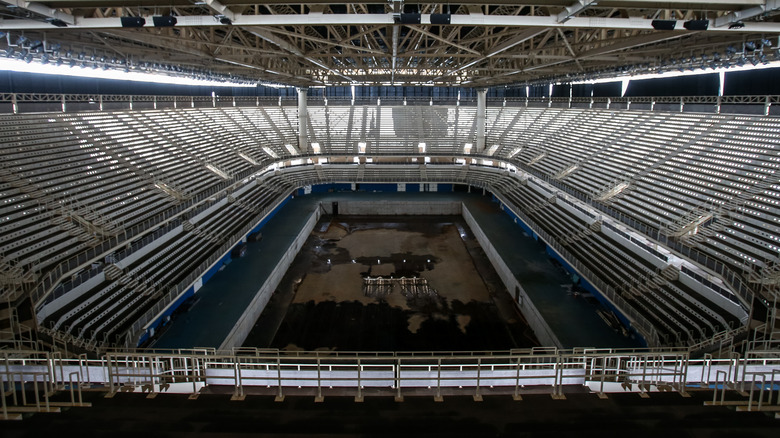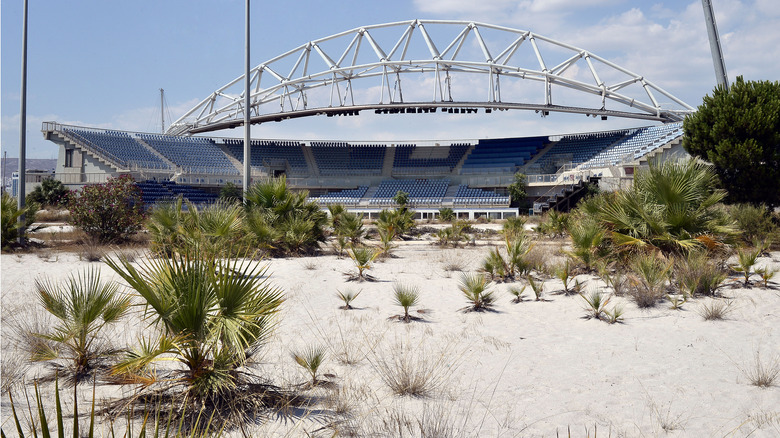What Really Happens To Olympic Stadiums After The Games?
Olympic stadiums are, at least temporarily, the centerpieces of international attention, the places where nations, teams, and individual athletes can make history. Yet what happens to the stadiums once winners are announced and everyone goes home? Surely they would be given a certain amount of reverence, given that people from all over the world had come to view and participate in the games. Unfortunately, that is often not the case (via Business Insider).
Some, such as the Centennial Olympic Stadium in Atlanta, Georgia, and Fisht Olympic Stadium in Sochi, Russia, have seen renewed lives, but many of the stadiums built specifically for the games have instead either been left to the elements or even demolished. Not only are purpose-built sites abandoned, but even those that had already existed prior to the games (and thus could theoretically be reused), such as Maracana Stadium in Rio, Brazil, have been left to degrade, and now present a public safety hazard (via CNN).
It's not unusual for Olympic stadiums to be left to the elements
While it might seem that reuse is a far more economical and sensible route than abandonment, according to Green Matters the maintenance costs of such massive structures can often be far more than a government is willing to spend. Abandoning the sites therefore has proven to be the cheaper and sometimes preferred option, and in many former stadiums, vegetation, animals, and humans searching for valuables are the only regular occupants.
This is especially true for the Olympic facilities in Sarajevo, Bosnia and Herzegovina, and Athens, Greece, where war and financial crisis respectively largely drew attention away from the buildings and funding that their repair would have required. (On the bright side, Greece did manage to renovate its primary 2004-era stadium). Even the 2008 Summer Olympic stadium in Beijing saw rapid decline, as there were no events big enough to justify using it again until recently. The stadium will be reused for the 2022 Winter games in a rare instance of the same facility being used more than once for the Olympics (via Olympics.com).

